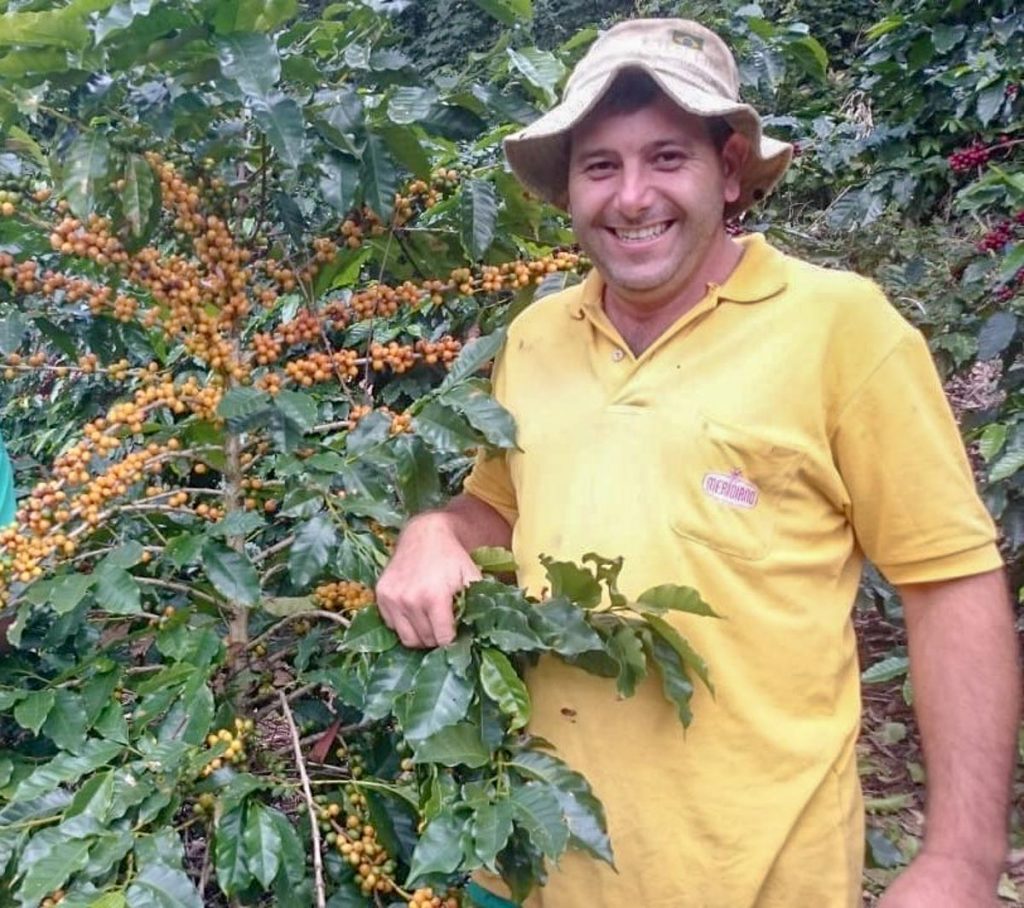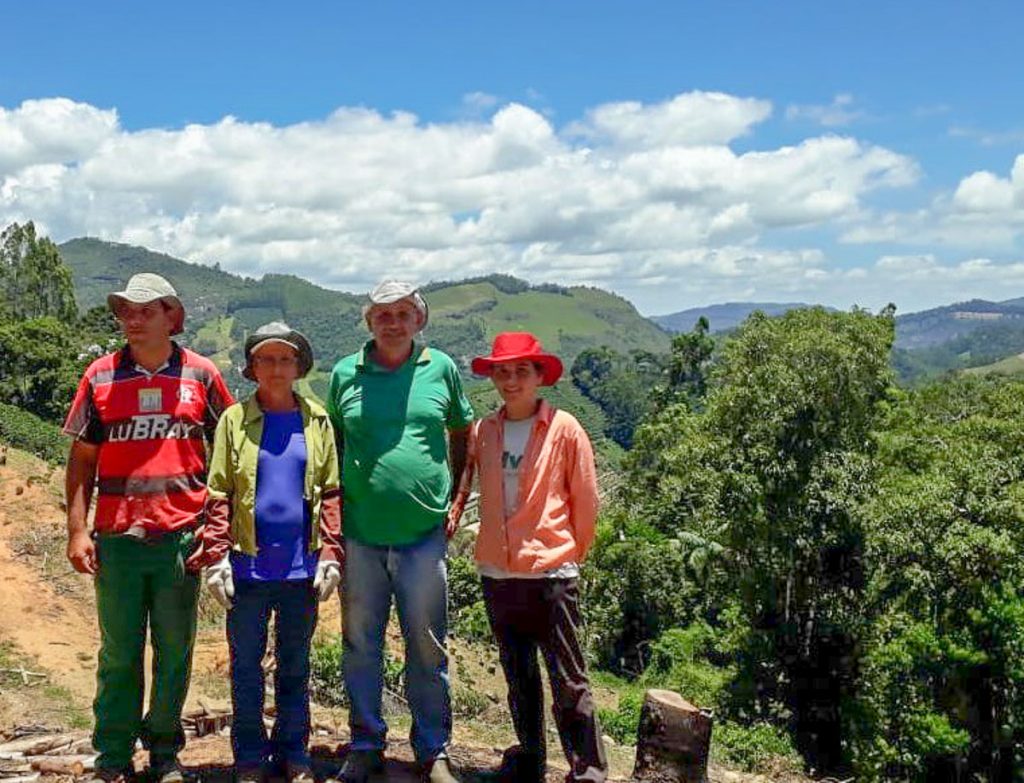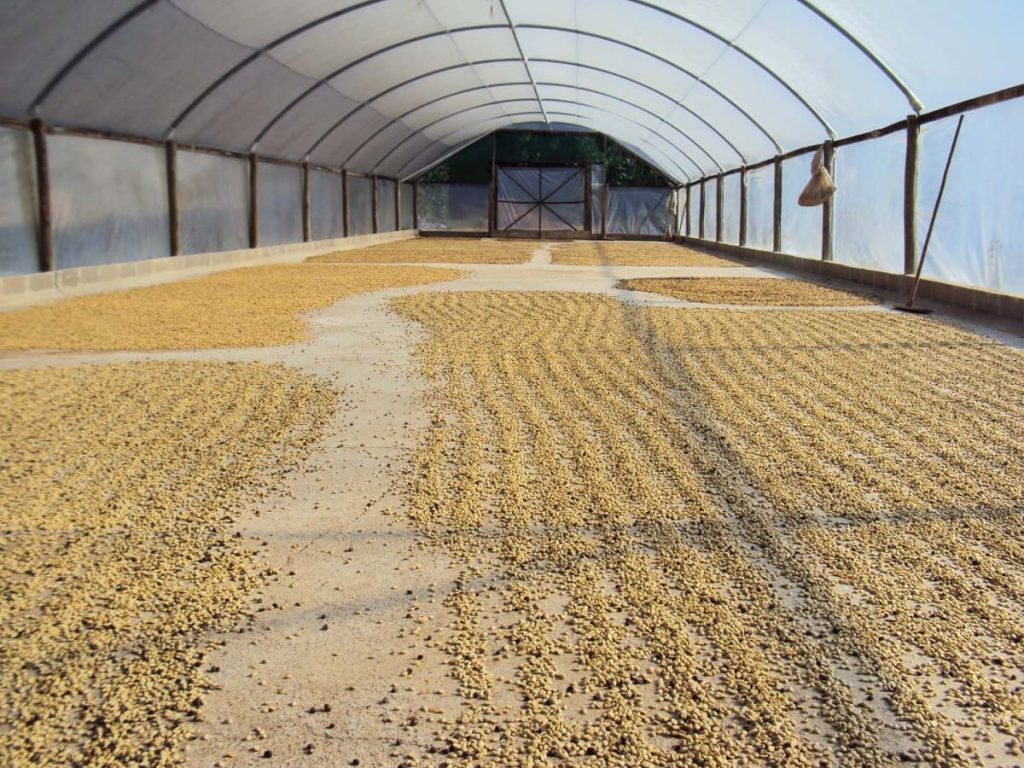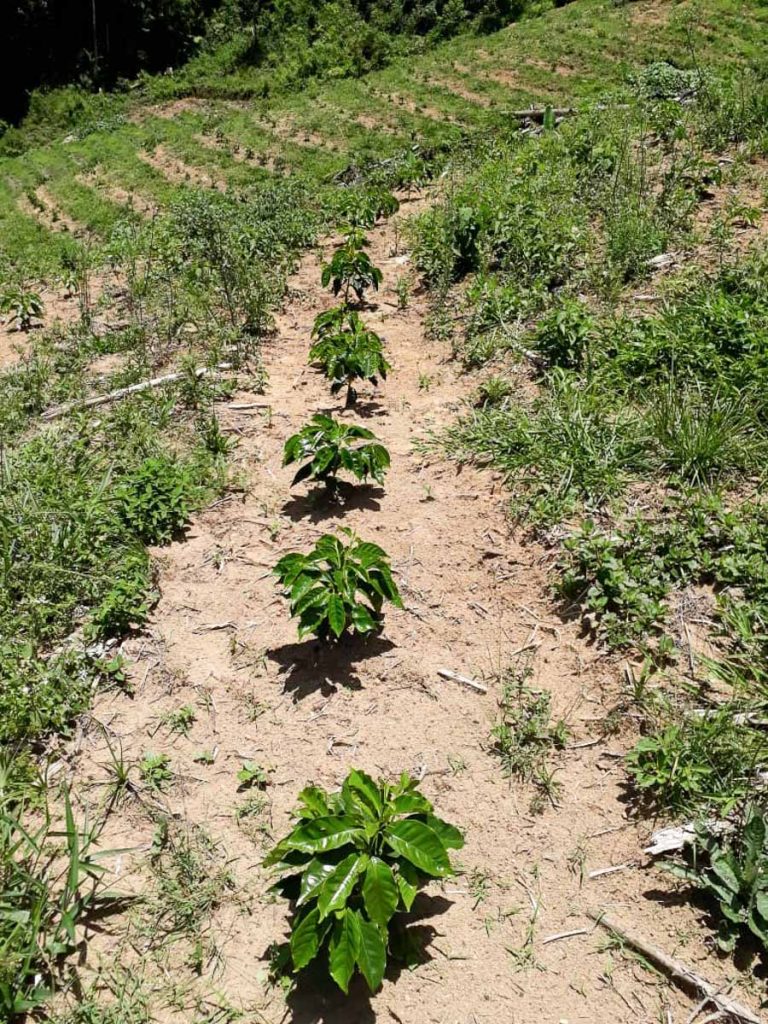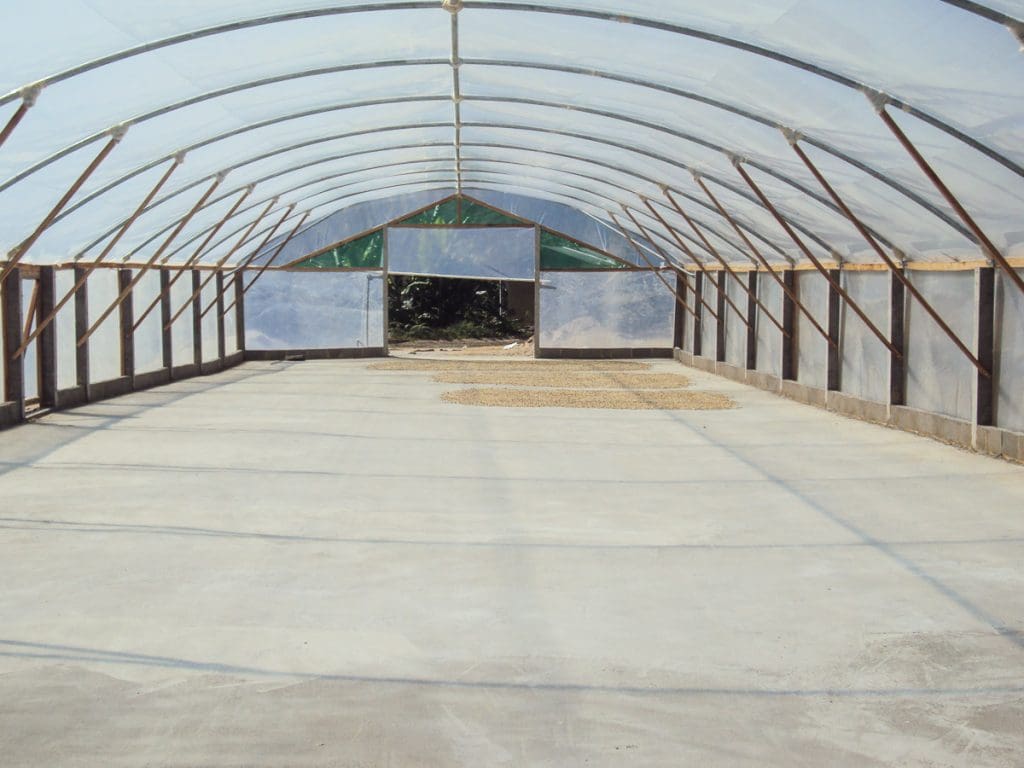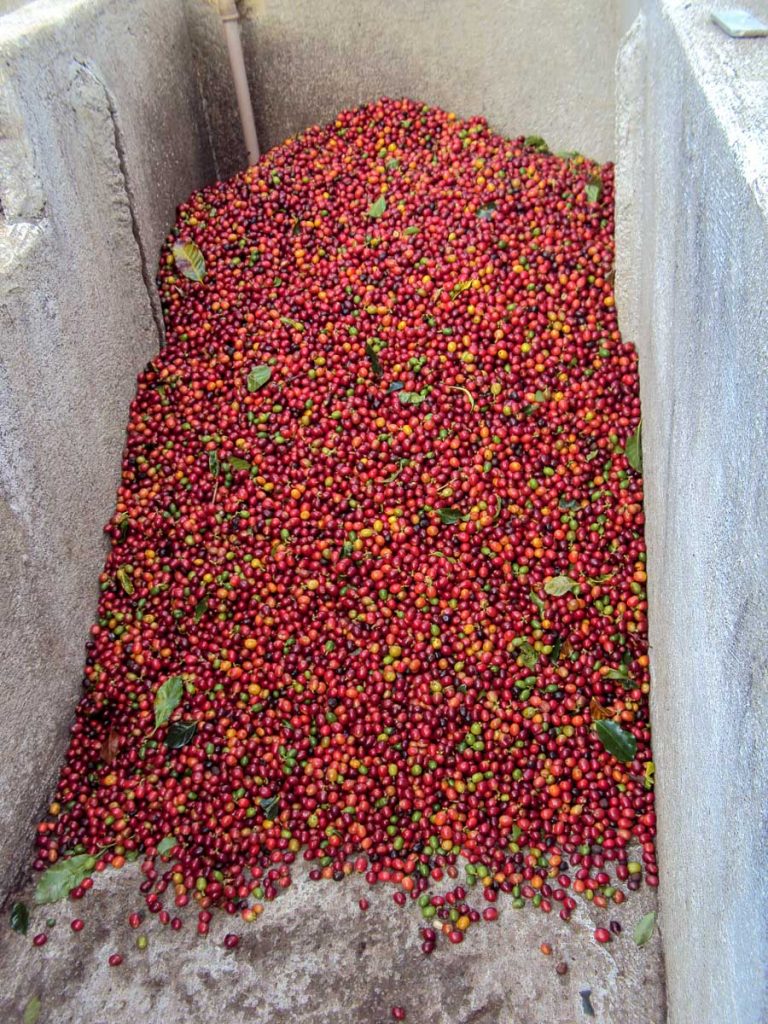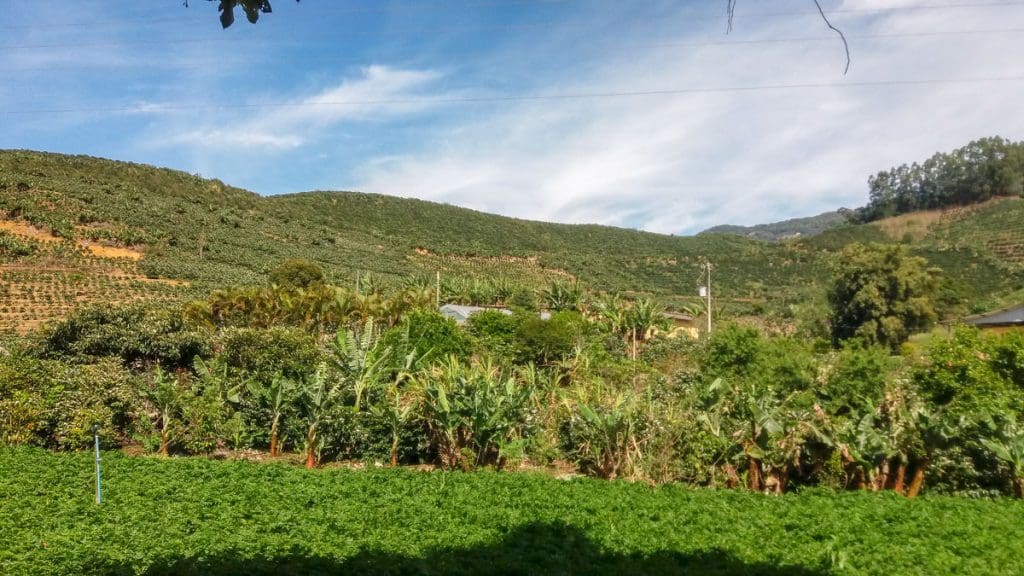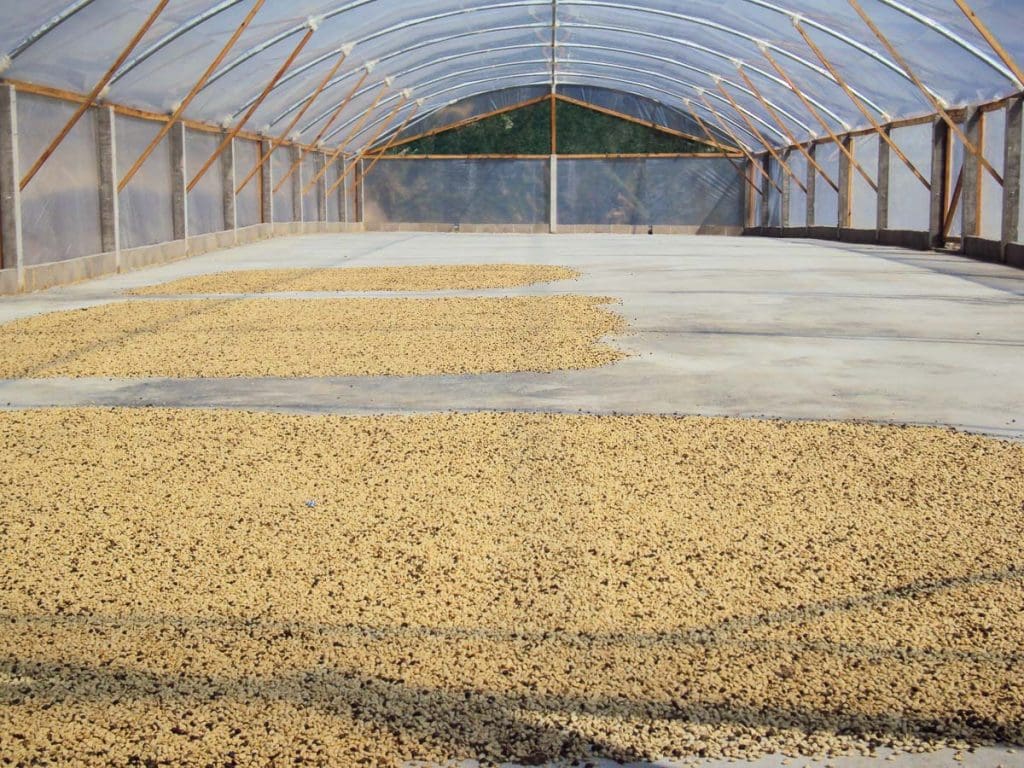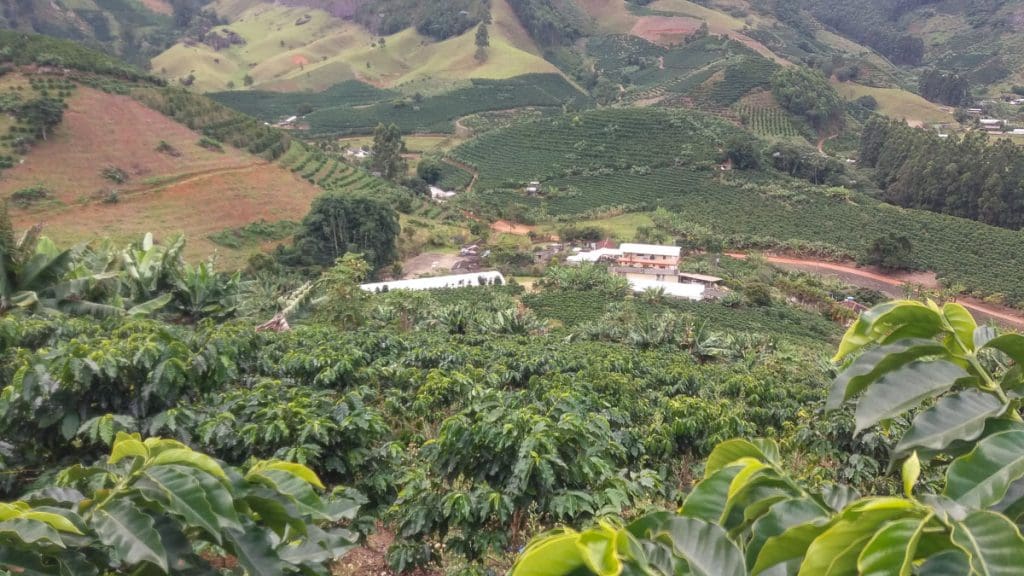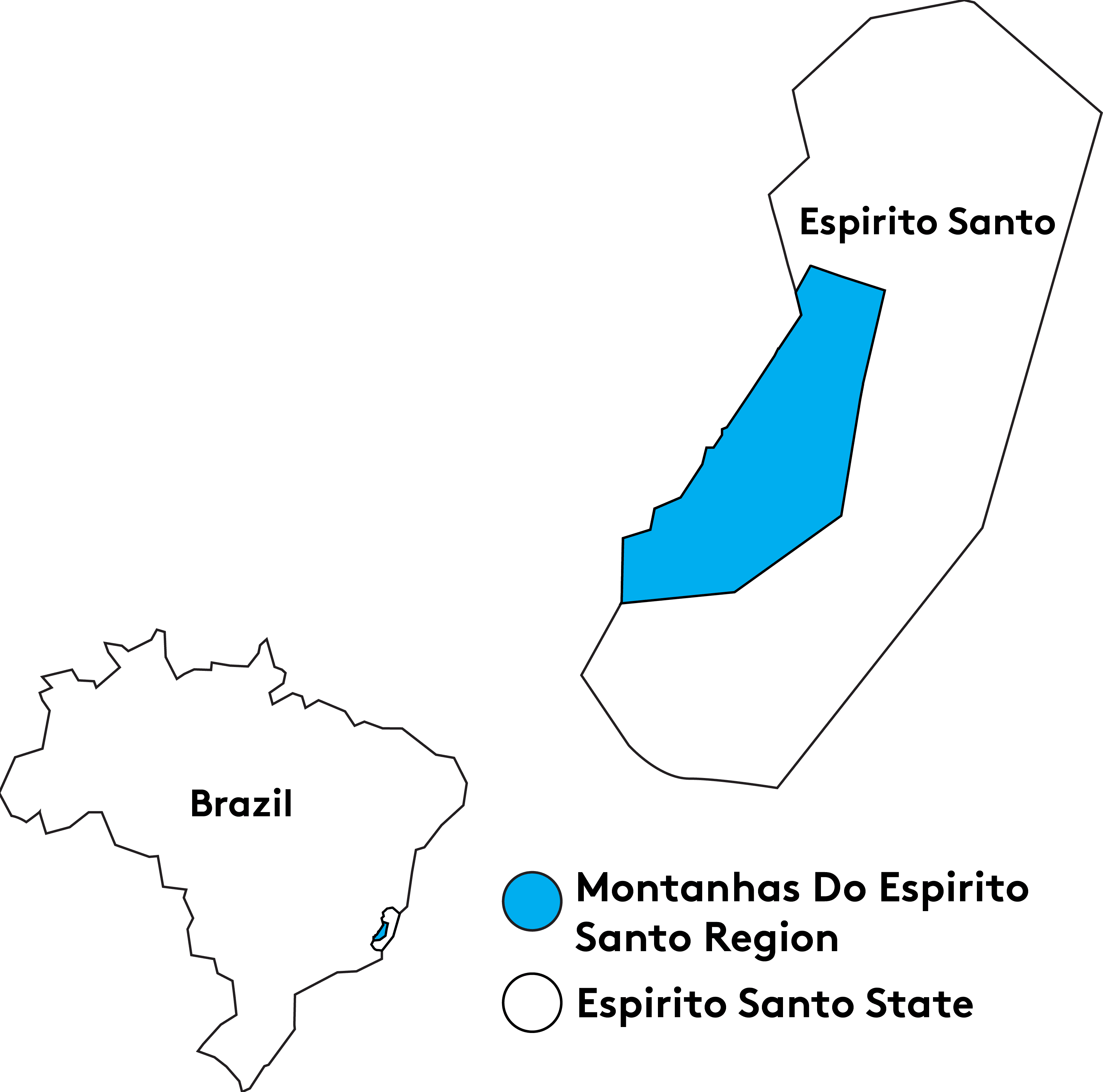Gilcimar is part of the third generation of coffee producers in his family, beginning with his grandfather Otavio Spavier, who worked for large coffee farmers in the Bateia region.
Gilcimar’s father Gilson was born in the midst of coffee production, learning from his father how to manage the. In 1978, Glison married Glorinha Augusto and continued the work begun by his father and passed onto his children: Gilcimar and Ana Dalva.
They acquired their own property in the city of Castelo, where they invested in producing high quality coffees by selective harvesting, Pulped Natural processing, and drying on raised beds. But difficulties continued to crop up, including lack of manual labor and the high costs of production.
As the oldest son, Gilcimar counts on the support of his parents and his sister who work with him on the farm. They keep him motivated to improve his cultivations with new varieties to achieve coffees of the highest quality. 2 of the farm’s 13 hectares are planted with coffee.
